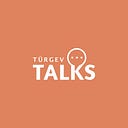The Hero’s Journey -The Refusal of the Call Excerpts of a talk given by Zulfiqar Awan
Theme, Texts & Movie
• Refusal of the call
• Lord of the Rings
• Star Wars
Refusal of the Call
Often in actual life, and not infrequently in the myths and popular tales, we encounter the dull case of the call unanswered; for it is always possible to turn the ear to other interests. Walled in boredom, hard work, or “culture,” the subject loses the power of significant affirmative action and becomes a victim to be saved. His flowering world becomes a wasteland of dry stones and his life feels meaningless. The myths and folk tales of the whole world make clear that the refusal is essentially a refusal to give up what one takes to be one’s own interest.
One is harassed, both day and night, by the divine being that is the image of the living self within the locked labyrinth of one’s own disoriented psyche.
Modern consumer society as addiction, paralysis.
So, we know what the day to day life of the individual looks like thanks to the Ordinary world. We also know what the “mission” is supposed to be thanks to the Call to adventure.
But now Campbell tells us that the hero has to do a complete 180 by refusing the call and going back to the starting point. Why? We know that he has to give in and accept the adventure at some point, so why not just skip this part?
The reason why is fairly simple, but often overlooked: the refusal of the call makes the hero more human.
Text: Lord of the Rings
Until now, Frodo’s mission consisted only in bringing the Ring to Rivendell, a quest that almost killed him. Now, he has been invited to join the council of Elrond.
As Boromir tries to convince the others that leaving the magical object in his hands is a good idea (spoiler alert: it’s not), Frodo observes without speaking. Same when Elrond says that the Ring must be destroyed.
He doesn’t speak, after all, he is just a little Hobbit, those kings and leaders don’t need his opinion, right?
Only after Gimli tries to break it with his ax that we see a reaction. Frodo understands that his connection with the Ring is still intact. And then, he sees for the first time the danger of Sauron’s creation.
Rather than discussing a solution, the members of the council start fighting among themselves. Frodo looks at the Ring and hears the same voice that has been haunting him since he left the Shire.
No one is holding it, but Sauron’s creation can still influence the souls of the people around it. If he stays silent, Frodo can go back to the Shire with his friends but will the rest of them be able to handle the Ring?
That’s when the hobbit decides to stop rejecting his destiny and steps up. As soon as he does, everything falls into place: the fight stops, an agreement is reached, and the rest of the Fellowship joins him.
The Refusal of the call exists to show the protagonist’s doubts, fears, insecurities and make him more relatable.
Movie: Star Wars
First, we have the Hero in Luke Skywalker. What makes him the Hero? Mainly, these three factors:
• His goal is empathetic.
• His pursuit of that goal drives the narrative.
• He grows and changes while pursuing the goal.
Step 2: The Call to Adventure
Call to Adventure: After buying a pair of seemingly inconsequential robots, Luke discovers that his R2 droid contains the Death Star plans and could help the Rebels destroy this planet-killing weapon. Obi-Wan Kenobi then calls Luke to action, saying, “You must learn the ways of the Force if you’re to come with me to Alderaan.”
Step 3: The Refusal of the Call
Refusal of the Call: Luke balks at this invitation, overwhelmed at the sudden change sweeping his life. “I can’t get involved! I’ve got work to do! It’s not that I like the Empire. I hate it! But there’s nothing I can do about it right now. It’s such a long way from here.”
Zulfiqar Awan
